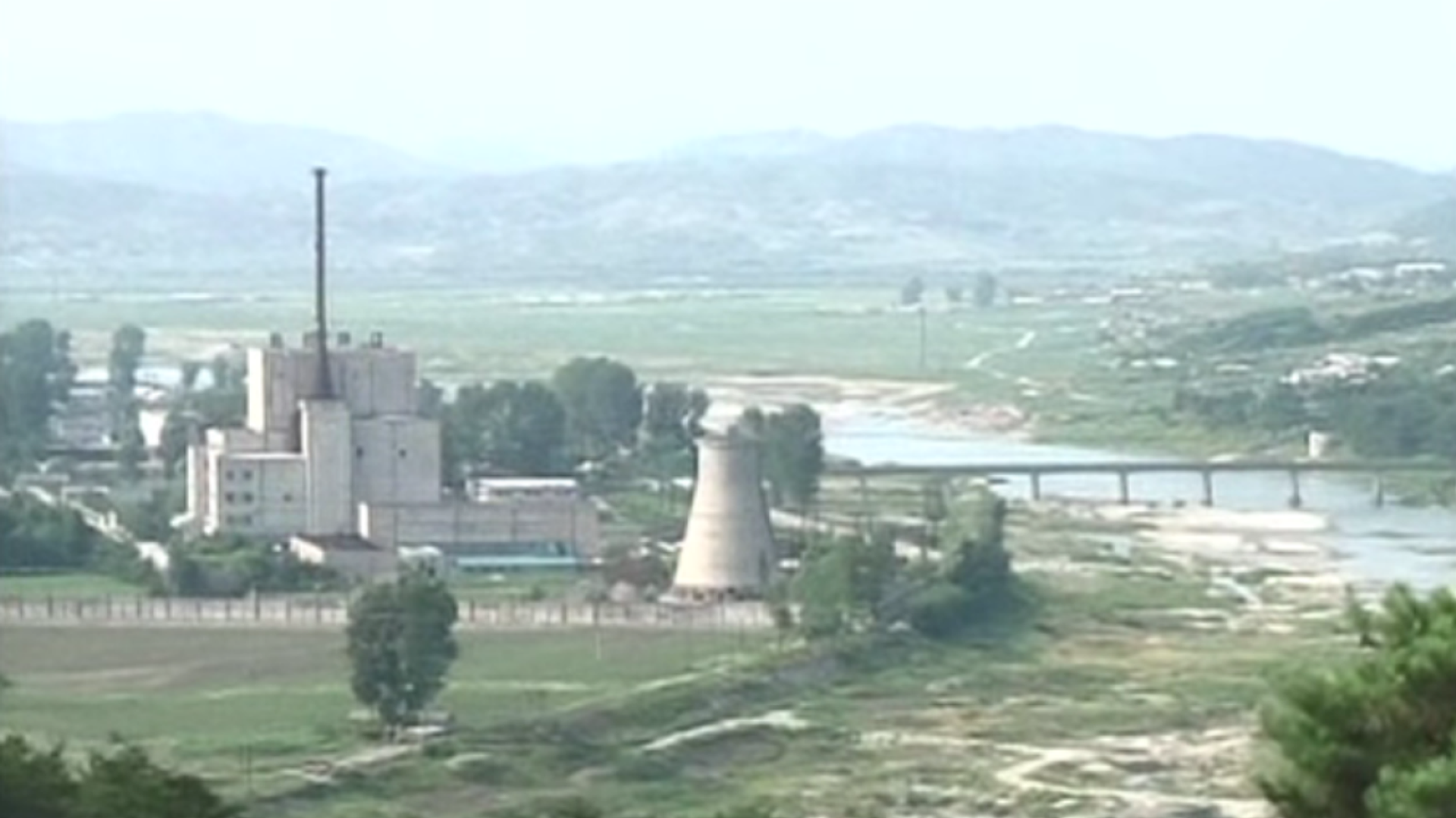https://sputnikglobe.com/20210830/iaea-estimates-north-korea-could-have-restarted-yongbyon-nuclear-reactor-1083748255.html
IAEA Estimates North Korea Could Have Restarted Yongbyon Nuclear Reactor
IAEA Estimates North Korea Could Have Restarted Yongbyon Nuclear Reactor
Sputnik International
Denuclearization talks between North Korea and the United States have stalled, with Washington calling for Pyongyang to step away from its nuclear program, and... 30.08.2021, Sputnik International
2021-08-30T01:05+0000
2021-08-30T01:05+0000
2024-06-08T11:31+0000
asia
world
newsfeed
yongbyon
yongbyon nuclear complex
international atomic energy agency (iaea)
nuclear
north korea
nuclear reactor
https://cdn1.img.sputnikglobe.com/img/07e4/0a/1e/1080934005_0:39:1285:761_1920x0_80_0_0_1ec022cb79ffaca81d88a76ad8c06556.png
There are signs that operations were resumed at Yongbyon, a plutonium-producing nuclear reactor in North Korea, the International Atomic Energy Agency (IAEA) stated in a report, according to the Wall Street Journal.The idea of a DPRK reactor restart is "deeply troubling" and would "clearly" violate the resolutions of the United Nations Security Council. Concerns were sparked in the report that Pyongyang might be boosting plutonium production, with the IAEA saying there were indications of the use of a nearby laboratory to separate plutonium from spent fuel earlier removed from the reactor.It was noted in the report that the Yongbyon reactor has been inactive since December 2018, until the beginning of July.After an inter-Korean summit in Pyongyang in September 2018, North Korea pledged to close its nuclear sites in Tongchang and Yongbyon but no official accords followed the pledges. Since then, the IAEA said several times that it observed activities at these sites, but noted it could not estimate them in detail due to a lack of access.Most recently, according to a March report, a coal-fired steam plant at the North’s Yongbyon nuclear complex was reportedly said to have returned to operation after a two-year pause.
north korea
Sputnik International
feedback@sputniknews.com
+74956456601
MIA „Rossiya Segodnya“
2021
News
en_EN
Sputnik International
feedback@sputniknews.com
+74956456601
MIA „Rossiya Segodnya“
Sputnik International
feedback@sputniknews.com
+74956456601
MIA „Rossiya Segodnya“
newsfeed, yongbyon, yongbyon nuclear complex, international atomic energy agency (iaea), nuclear, north korea, nuclear reactor
newsfeed, yongbyon, yongbyon nuclear complex, international atomic energy agency (iaea), nuclear, north korea, nuclear reactor
IAEA Estimates North Korea Could Have Restarted Yongbyon Nuclear Reactor
01:05 GMT 30.08.2021 (Updated: 11:31 GMT 08.06.2024) Denuclearization talks between North Korea and the United States have stalled, with Washington calling for Pyongyang to step away from its nuclear program, and in particular to dismantle its nuclear sites, Yongbyon among them. The US was reluctant, however, to first offer sanction relief, which caused the deal to fall apart.
There are signs that
operations were resumed at Yongbyon, a plutonium-producing nuclear reactor in North Korea, the International Atomic Energy Agency (IAEA) stated in a report, according to the Wall Street Journal.
“Since early July, there have been indications, including the discharge of cooling water, consistent with the operation of the reactor,” the IAEA report said.
The idea of a DPRK reactor restart is "deeply troubling" and would "clearly" violate the resolutions of the United Nations Security Council. Concerns were sparked in the report that Pyongyang might be boosting plutonium production, with the IAEA saying there were indications of the use of a nearby laboratory to separate plutonium from spent fuel earlier removed from the reactor.
It was noted in the report that the Yongbyon reactor has been inactive since December 2018, until the beginning of July.
After an inter-Korean summit in Pyongyang in September 2018, North Korea
pledged to close its nuclear sites in Tongchang and Yongbyon but no official accords followed the pledges. Since then, the IAEA said several times that it observed activities at these sites, but noted it could not estimate them in detail due to a lack of access.
Most recently,
according to a March report, a coal-fired steam plant at the North’s Yongbyon nuclear complex was reportedly said to have returned to operation after a two-year pause.


